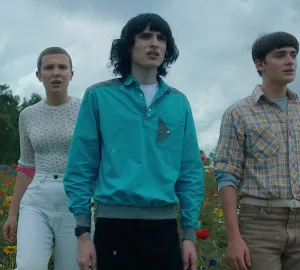Every great book emerges as a consequence of unique historical circumstances and the personal motivations or experiences of a writer himself. That is why knowing the historical context of Frankenstein is important for understanding its significance in modern literature. The life of Mary Shelley and her entourage had a profound impact on her views or beliefs which found expression in her original novel. Out of all topics she could write about, she chose a story of a deranged scientist pursuing his morally ambiguous task of creating life out of nothing. This premise and the questions that it imposes still haunt us 200 years later, as they seem more important than ever as we relentlessly develop our technology or science.
The Research Of Human Nature
There is something deep inside us that drives us forward into the unknown, compelling us to explore and be curious all the time. Scientists know this better than anyone as they dedicate their lives to pursuing knowledge at any cost, regarding all topics from chemistry to engineering. Sometimes they are blinded by their quests and nothing but a final result matters as they drift into the unknown just like Victor Frankenstein. There are so many modern essays exploring this and they all agree that humans cannot deny their nature. We are explorers, which drives us forward and fuels our progress but we need to learn to control our inherited nature.
If we just aim forward without any disregard for others or those implications of our pursuit, we will soon find ourselves in big trouble. This is what Mary Shelley was trying to tell us and what all modern essays about Frankenstein are trying to warn us about. We may be free to do as we please, but there are consequences that we need to consider plus we can see examples of our selfishness harming our planet all around us. There are some incredible essays at https://gradesfixer.com/free-essay-examples/frankenstein/ which find a parallel between Frankenstein and debates about cloning, using stem cells or producing GMO food. Perhaps, what students can learn from any essay on Frankenstein is that we cannot help being who we are, but we need to tame ourselves for our own good.
A Paper On Morality
When Mary Shelley’s Frankenstein was published, it was surprisingly well-received and praised for its insight, fiction symbolism, and ingenuity among other things. Since this book contains a lot of Biblical references, debates about morality were just inevitable. We still debate whether the Monster was really the monster or was made one by society or whether this book actually shows many examples of Victor Frankenstein being the ultimate villain. It seems like moral ambiguity is left there on purpose to let us know that we cannot escape from making bad judgments or acting evil sometimes even if we do not want to. The rightness of justifying or condemning other’s deeds remains the most important Frankenstein question that we all need to contemplate about.
Free Will Or Determinism
By the end of this story, our Protagonist loses everyone he loves and the Monster embraces evil against the society that rejects it. Everyone reflects the consequences of their actions, but it seems that no other choice could have been made at the time. The Frankenstein meaning suggests that free will is an illusion as we cannot escape our nature or subconscious decisions. It seems like all these summaries of our lives are predetermined, as an invisible force within us makes us act irrationally. This raises questions of who is to blame, the monster or a Creator who bestows titles or damnation to everyone by whim.
From today’s perspective, this novel seems like a light read of science fiction, but when it came out, it reflected some real scientific aspirations of its days. Romanticism revolving around it was just a sugarcoat used for reaching a bigger audience, but its message remains universal to this day. Even today teaching Frankenstein is important as it makes us think about morality in science and dares us questioning human nature in general. Perhaps, Frankenstein is a true anti-hero, outcast ostracized by a society that doesn’t like deviations of any kind. More than that, maybe we haven’t learned our lessons in these last 200 years, so we should seriously contemplate this novel’s messages before we continue messing with mother Nature.






